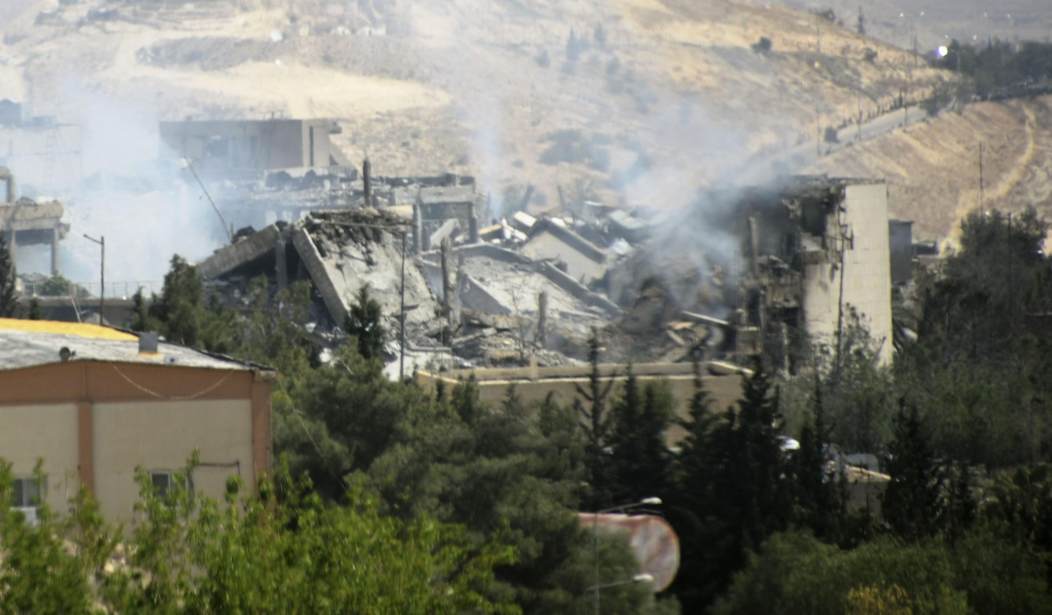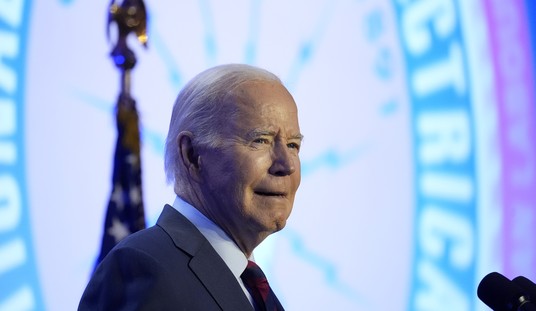On February 10, after midnight, an Iranian drone entered Israeli airspace. After 30 seconds it was shot down by Apache helicopters of the Israeli Air Force. Israeli planes then attacked the T-4 airbase in central Syria from which the drone had been launched.
On April 9, Israel carried out a larger airstrike on T-4 that reportedly “targeted Iran’s entire attack drone program at the base.” The attack also killed seven members of Iran’s Qods Force, including a colonel. Iran promised retaliation.
On April 13, Israel announced that the Iranian drone shot down in February was carrying explosives — enough to cause damage and “mark[ing] an unprecedented Iranian attack on Israel.”
That is, a direct Iran-on-Israel attack. Iran did not involve a proxy terror organization like Hezbollah or Hamas, and Iran apparently attacked with the aim of inflicting a blow on Israel that would undoubtedly have sparked an Israeli counterattack and — what else?
Israel has been trying to warn Western officials — who seem to turn deaf ears — that Iran’s entrenchment in Syria is getting more dangerous by the day and can lead to war. Iran’s February 10 drone attack looks like clear proof.
It was no coincidence that Friday, the day on which Israel announced that the drone had been armed with explosives, was also the day that the U.S., France, and the UK were preparing an attack on Bashar Assad’s chemical facilities that was carried out early Saturday morning.
It’s not clear if Israeli officials — who were briefed on the attack sometime on Friday — knew in advance that it would only target Syrian sites. In any case, they were reportedly unhappy with the strike’s limited scope and with the fact that it left Iran’s facilities in Syria untouched.
As Times of Israel put it: “Israeli security chiefs made clear on Saturday night that Israel fears the Trump Administration will now consider that its work in Syria is done, and leave Israel alone to face the dangers posed by Iran’s growing military presence in Syria.”
Seemingly the attack offered an opportunity to hit Iranian installations in Syria, which could have been done by airstrike or cruise missile with no loss to the Western forces. This would have sent Iran a powerful deterrent message that its days of building a forward base against Israel in Syria are numbered.
It comes as no surprise that European powers like France and the UK would not want to touch Iran, which they regard as a lucrative source of business for European multinational firms like Airbus, Total, Siemens, and Peugeot.
But trying to decipher U.S. intentions is trickier.
On the one hand, President Trump has recently appointed Iran hawks like Mike Pompeo and John Bolton to top posts. On the other hand, Trump has discussed leaving the Middle East to its own devices. As Trump put it in February: “We’re [in Syria] for one reason: to get ISIS and get rid of ISIS and to go home. We’re not there for any other reason.”
By now, though, punishing the Assad regime for using chemical weapons — which Trump has done twice — clearly constitutes “another reason.”
It is not clear is why it is a vital U.S. interest to fight ISIS, a heinous terror organization with limited power, and the Assad regime — also heinous but drastically weak, salvaged by its patrons — but not Iran. Under the mullahs, Iran is an expansionist country of eighty million people with ballistic missiles, a nuclear program, a navy, air force, and land forces, terrorist proxy arms, and is now wreaking havoc across the Middle East.
On Saturday, Trump called the Middle East “a troubled place” and said “the fate of the region lies in the hands of its own people.”
Israeli defense experts indeed assess that, if it comes to an Israel-Iran war, Israel is far stronger militarily and will prevail. Though victory could come at a heavy cost, especially if Hezbollah joins the battle.
But it will be a war that could have been avoided with a little more Western resolve — at little price — against Iran.








Join the conversation as a VIP Member